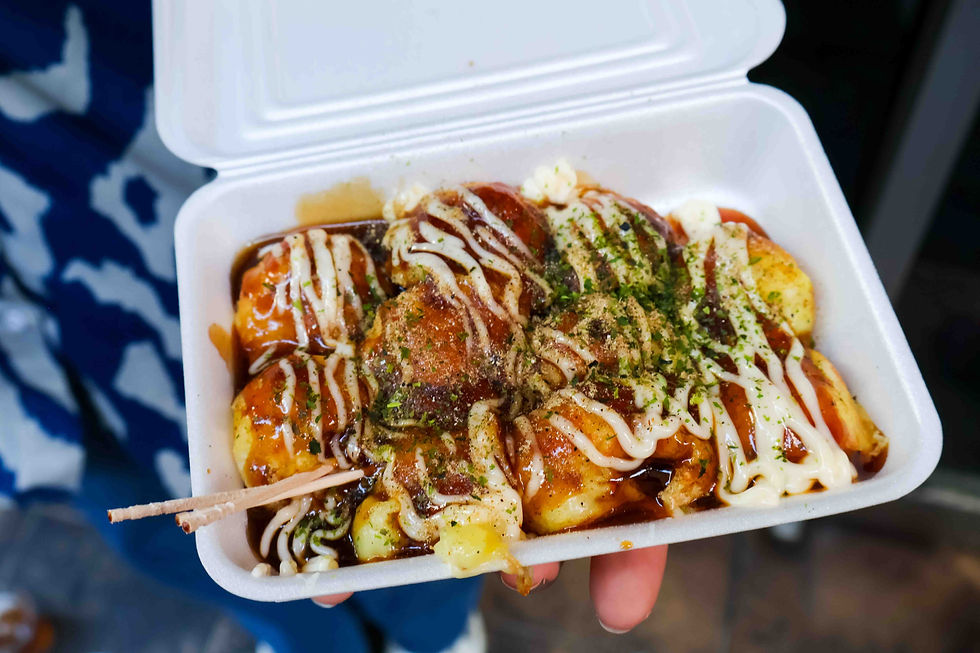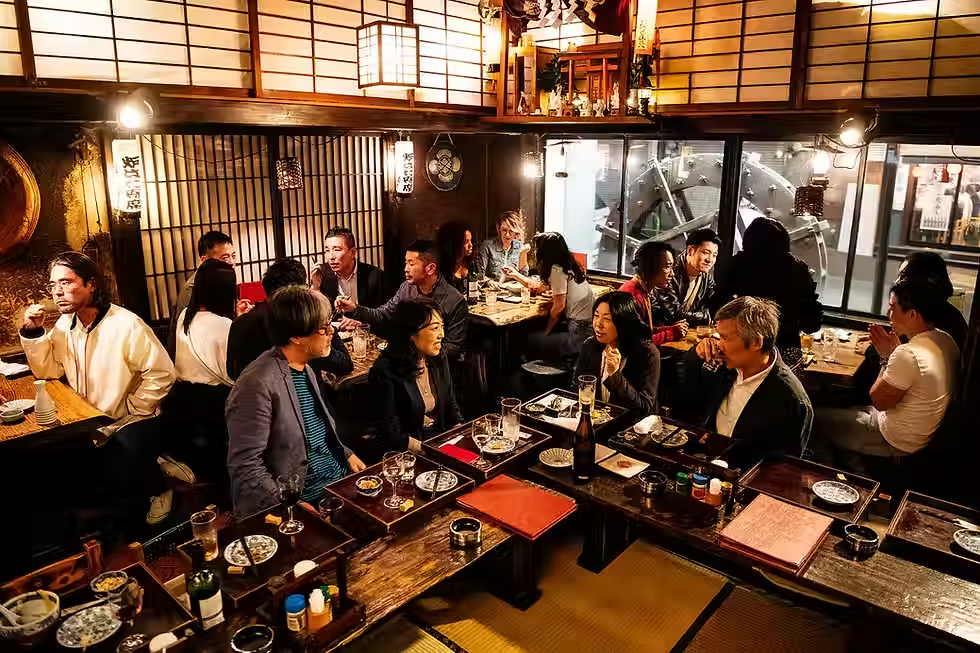Dining like a Local in Tokyo: A Complete Guide to Navigating Tokyo's Food Culture
Frank Striegl
•
Aug 12, 2025
•
4
min read
Tokyo is a dream destination for food lovers, but to truly experience the city's culinary scene, you have to know where to look. There is an endless amount of food - whether tiny shops in hidden streets or counter seats filled with salarymen.

While entering those local joints can be intimidating, don't let it keep you from trying these more hole-in-the-wall spots. They're usually the places that let you truly dive deeper into Tokyo's food culture. Here's how to navigate the city's dining culture like a local, so you can find, and enjoy the finest restaurants.
Use Japanese Websites Like Tabelog
In Japan, Tabelog is where locals leave their honest reviews—and they tend to be more strict than the reviewers on Google, for example. So if a restaurant ranks around 3.5 or higher, that typically means the food will be fantastic. This is also where you'll be able to find restaurants you likely haven't come across before on other platforms—even some of the best spots.

Don't Feel Intimidated
Some restaurants (especially the tiny, local-facing ones) can feel intimidating. The language barrier between you and the staff, or even a fully Japanese menu doesn't make it any easier. But here's the thing—most restaurants are actually very welcoming to foreigners, even if they don't look that way. Restaurant staff usually won't mind going out of their way to help you out. Just make sure to have your translation app ready.

Avoid Touristic Spots
While the main tourist areas in Shibuya or Shinjuku offer some great food spots (they're popular for a reason), you'll find that they can be on the pricier side. But Tokyo is an incredibly large city, and the best spots aren't limited to popular and crowded hubs. Go even slightly off the beaten path and you'll be (subtly) greeted by plenty of friendly neighborhood eateries. Try visiting Koenji, Kichijoji, Nakano or even Ebisu, if you want to stay central. The food will be just as (if not more) excellent, with more bang for your buck. It will completely change your dining experience in Tokyo, showing a different side of the city's food culture.

Try Your Hand At Counter Dining
Counter-only restaurants are very common in Tokyo. Some of the city's finest spots, whether for sushi, ramen, or even yakitori, are small shops with just a few seats. You get to see the chef up close preparing your food. These places are typically frequented by solo diners, so if you're traveling by yourself, this is a dream come true. Now if you're traveling with a big group, you may not be seated together—but don't miss out because of that.

Avoid Peak Hours
In some areas, the lunch rush can get a little crazy. Right after noon, office workers will head out for a quick lunch. Wrong timing can cost you quite some time if you have a busy schedule exploring the city. Being mindful of the peak hours will get you shorter lines and better service, especially if you're trying to visit some of those more popular restaurants! Visiting before noon, for lunch, and grabbing dinner before 5 or after 8, will certainly pay off.

Follow The Crowds
This may sound contrasting, but long lines don't always indicate a tourist hub or overrated spot! The locals always know the best places and will often frequent a place, even if they get a line. And tiny restaurants tend to attract queues quicker. So don't let it scare you off, it's typically worth the wait. And the best part is that they move rather fast. Of course, this doesn't mean you should only enter somewhere with a line outside—even locals sometimes overlook the places that don't get a lot of traffic.

Don't Miss Out On Daily Specials
If you come across a handwritten sign outside, or a separate menu—order it! These menu items are sometimes seasonal, or sometimes a one-off being the chef's latest creation. They can easily be the best thing on the menu and you likely won't find it elsewhere, so don't be afraid to step into the unknown when it comes to special menu items.

Don't Limit Yourself
With a Japanese menu it's easy to get lost in the many unfamiliar dishes, and while you might want to stick with the few ones you recognize, some of the best dining experiences happen when you simply try something new. See your neighbor eat something that looks interesting? Why not start there? You'll come across dishes you've never even heard of!

Be Mindful Of Local Etiquette
While Japanese dining is not as intimidating as you might think, it certainly goes a long way to be mindful of some basic rules or customs. No tipping, lingering, or loud phone calls, and even a simple "Itadakimasu" before you eat or "Gochisousama deshita" when you finish, is always well received by staff. This will take your experience to a deeper level, and you might even get some heartfelt encounters too.
Look At The Japanese Menu
The English menus many restaurants offer are incredibly helpful, but they're usually also simplified. This means that some of the dishes that locals love, might be left off the English menu. Pull out your translation app and check out their regular menu—you might just order something that most tourists miss!

Final Thoughts
Dining like a local in Tokyo means you may have to step outside your comfort zone, embrace the unknown, and trust that wherever you go, you'll get to experience another layer of Tokyo's food culture. Whether it's going off the beaten path, following the locals, or trying something new—these tips will help you find some of the city's best food experiences.







